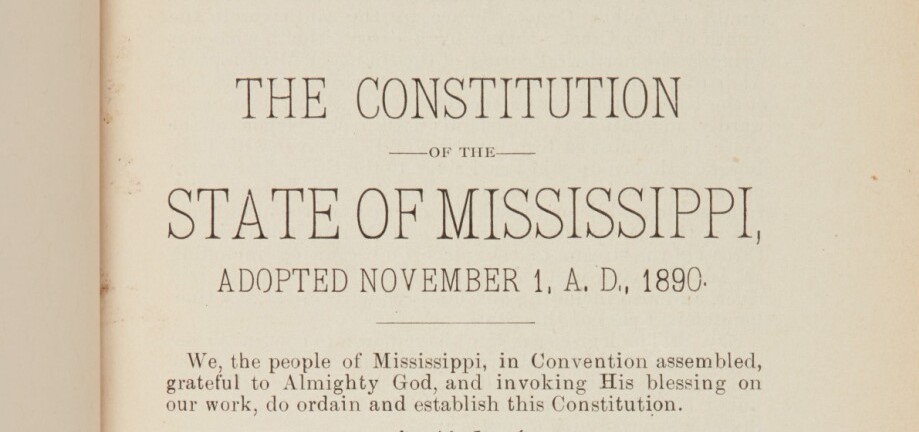
Harness v. Watson (Amicus)
What's at Stake
Whether Mississippiโs 1890 felony disenfranchisement law, adopted for the express purpose of disenfranchising Black voters, violates the Fourteenth Amendmentโs Equal. Protection Clause.
Summary
In 1890, in a reaction to Reconstruction, Mississippi adopted a felony disenfranchisement law, for the express purpose of disenfranchising Black voters. The State made minor amendments to the law in 1950 and 1968. Petitioners argue that the law violates the Fourteenth Amendment because it was adopted for the purpose of discriminating on the basis of race. The subsequent adjustments to the law, which removed one felony and added another, do not remove the discriminatory taint of the remaining provisions.
In Hunter v. Underwood, the U.S. Supreme Court invalidated a provision of the Alabama Constitution, enacted at the 1901 Alabama constitutional convention, that disfranchised people convicted of crimes โinvolving moral turpitude.โ The Court explained that โ[t]he Alabama Constitutional Convention of 1901 was part of a movement that swept the post-Reconstruction South to disenfranchise blacks.โ The Court unanimously held that the provision โwas enacted with the intent of disenfranchising blacksโ and therefore violated the Fourteenth Amendment.
The petition in this case argued that, just as in Alabama, the disenfranchising offenses set forth in the 1890 Mississippi Constitution were selected because the drafters believed were disproportionately committed by African Americans. In an amicus brief filed jointly with the NAACP Legal Defense Fund, we argue that the provision is unconstitutional for the same reason the Alabama provision struck down in Hunter v. Underwood was unconstitutional: it was enacted โwith the intent [to] disenfranchis[e] blacks,โ and continues to disproportionately disfranchise African Americans to this day.
Legal Documents
-
12/02/2022
ภฯฐฤรลฟชฝฑฝแน๛ Amicus Brief in Support of Petitioners
Date Filed: 12/02/2022
Court: Supreme Court